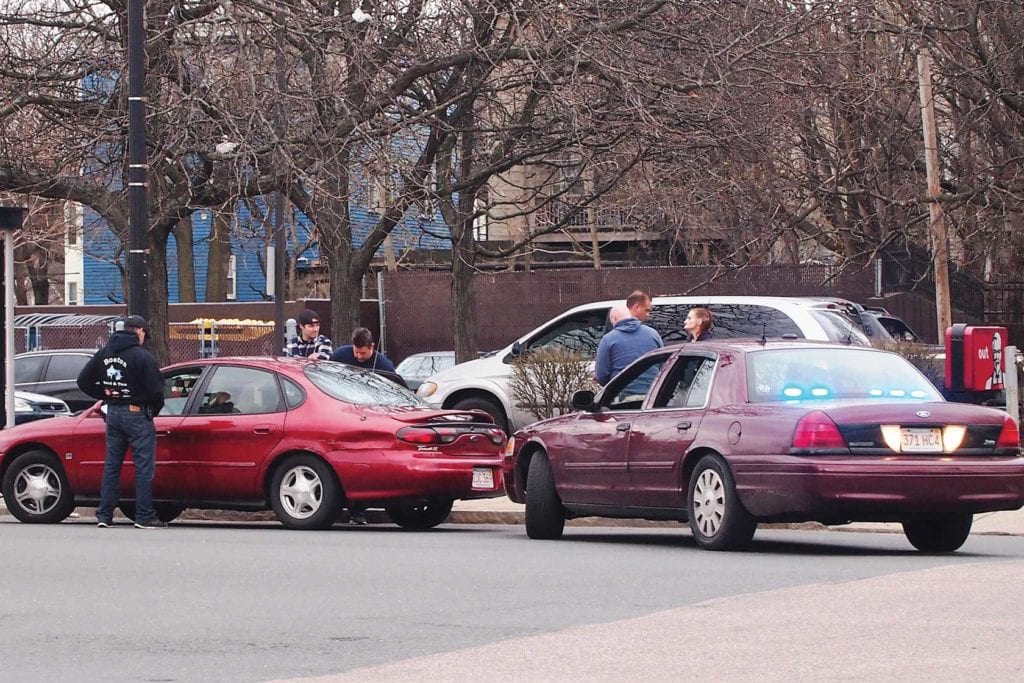
A recent report on national policing data has shown what many people already suspected: across the country, black and Latino people are stopped much more often by police than white people are.
The Stanford Open Policing Project, a team of researchers and journalists at Stanford University, compiled state and municipal data from across the country and found that of the more than 200 million traffic stops, black people were more likely to be pulled over, and once stopped, black and Latino drivers were more likely to be searched than white drivers.
In Boston, although traffic stop data is not publicly available, field interrogation and observation (FIO), or pedestrian stop, data is. In 2014, the American Civil Liberties Union of Massachusetts released a report studying this data, which revealed that from 2007-2010, 63 percent of FIO encounters in Boston were black pedestrians, despite only 24 percent of the city’s population being black.
This year, State Sens. Sonia Chang-Diaz and James Eldridge and State Reps. Chynah Tyler and Bud Williams have filed a bill which would require police across Massachusetts to record data on traffic and pedestrian stops and conduct regular analyses of that data.
Originally filed in 2015 by Chang-Diaz, then-Sen. Linda Dorcena Forry and then-Rep. Byron Rushing, the legislation would require specific information to be recorded for every FIO and motor vehicle stop: the reason for the stop; the date, time and duration of the encounter; the location; the race, gender and approximate age of the person or driver and any person searched; whether those people have limited English proficiency; whether a search was conducted and if any contraband was found; whether the stop resulted in any other action by the police officer; and the name and badge number of the officer.
“Tracking data on pedestrian and traffic stops is a critical first step toward understanding and addressing racial profiling,” Chang-Diaz said in a statement. “You can’t fix a problem until you know how big it is and where it’s happening — or where positive progress is happening, for that matter. By both outlawing racial profiling and tracking police stops, this bill will help us recognize racial profiling when it is occurring and give us tools we need to reduce implicit bias.”


![Banner [Virtual] Art Gallery](https://baystatebanner.com/wp-content/uploads/2024/04/Cagen-Luse_Men-at-store-e1713991226112-150x150.jpg)



